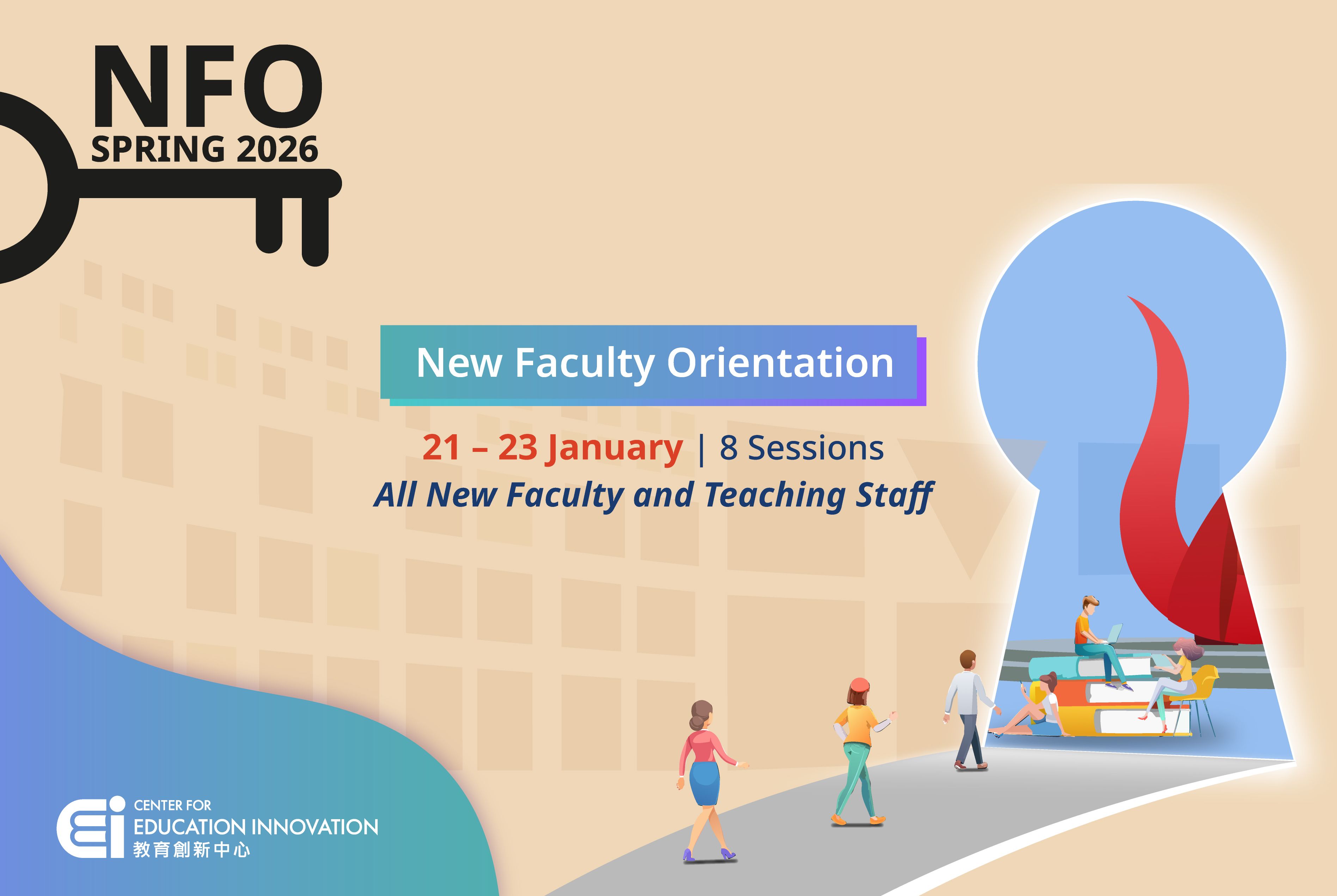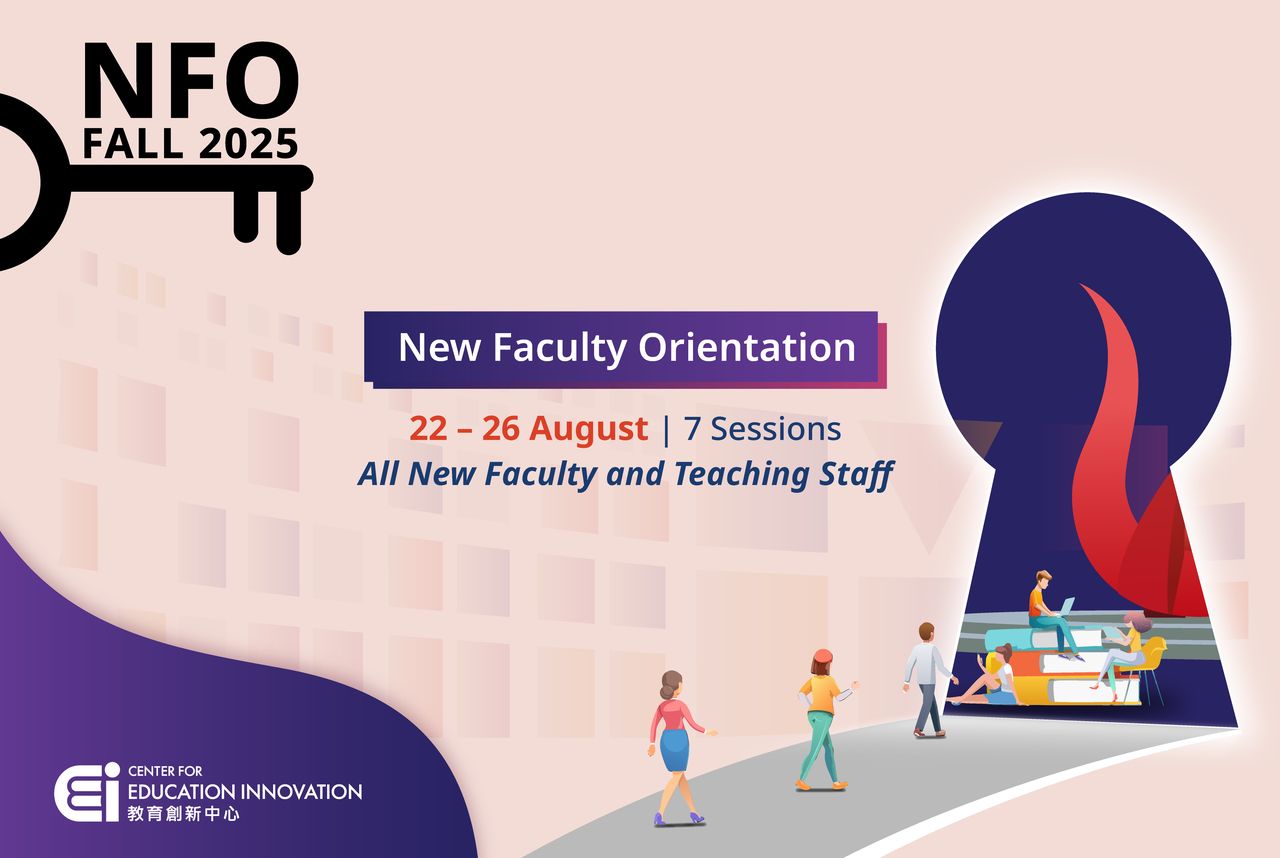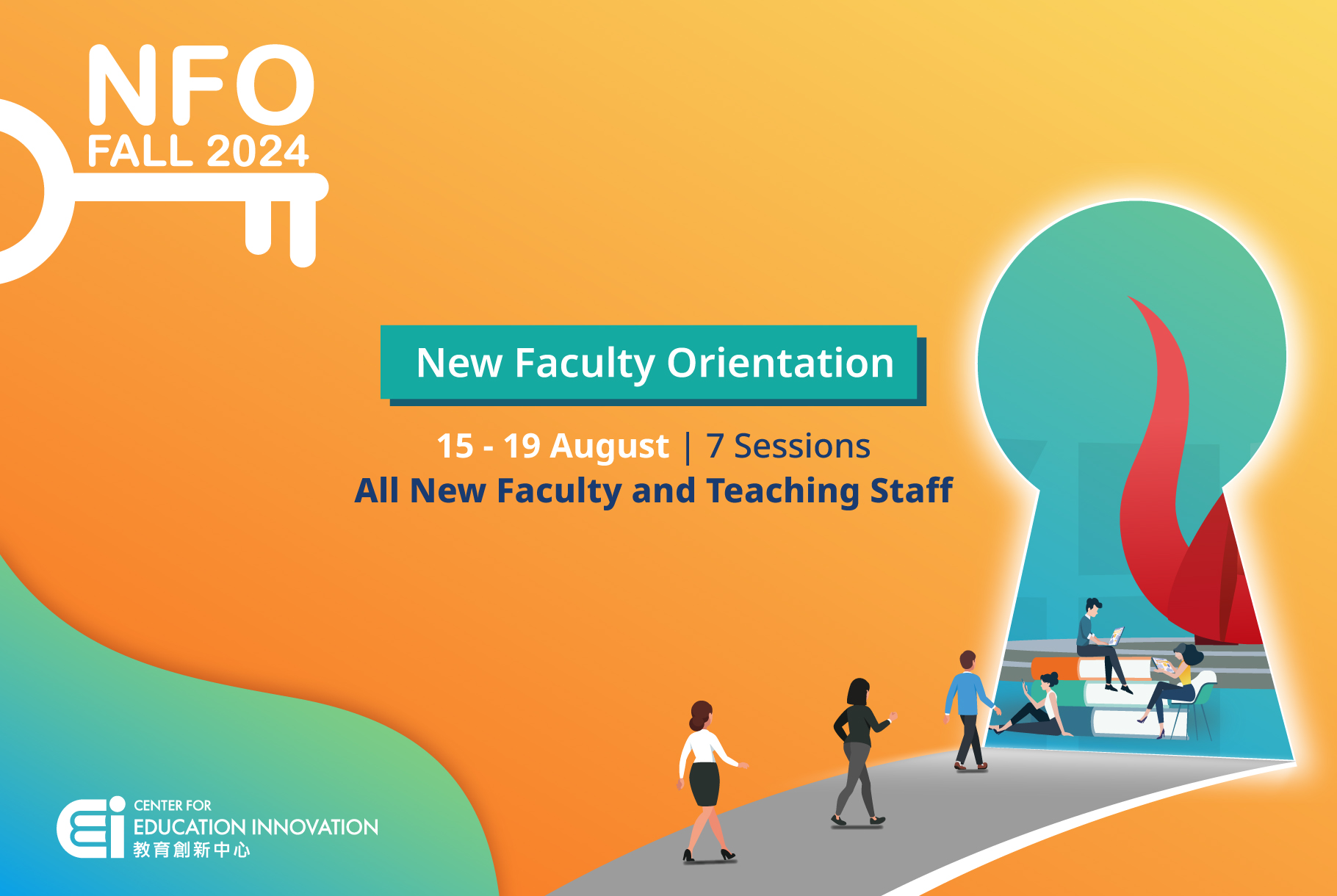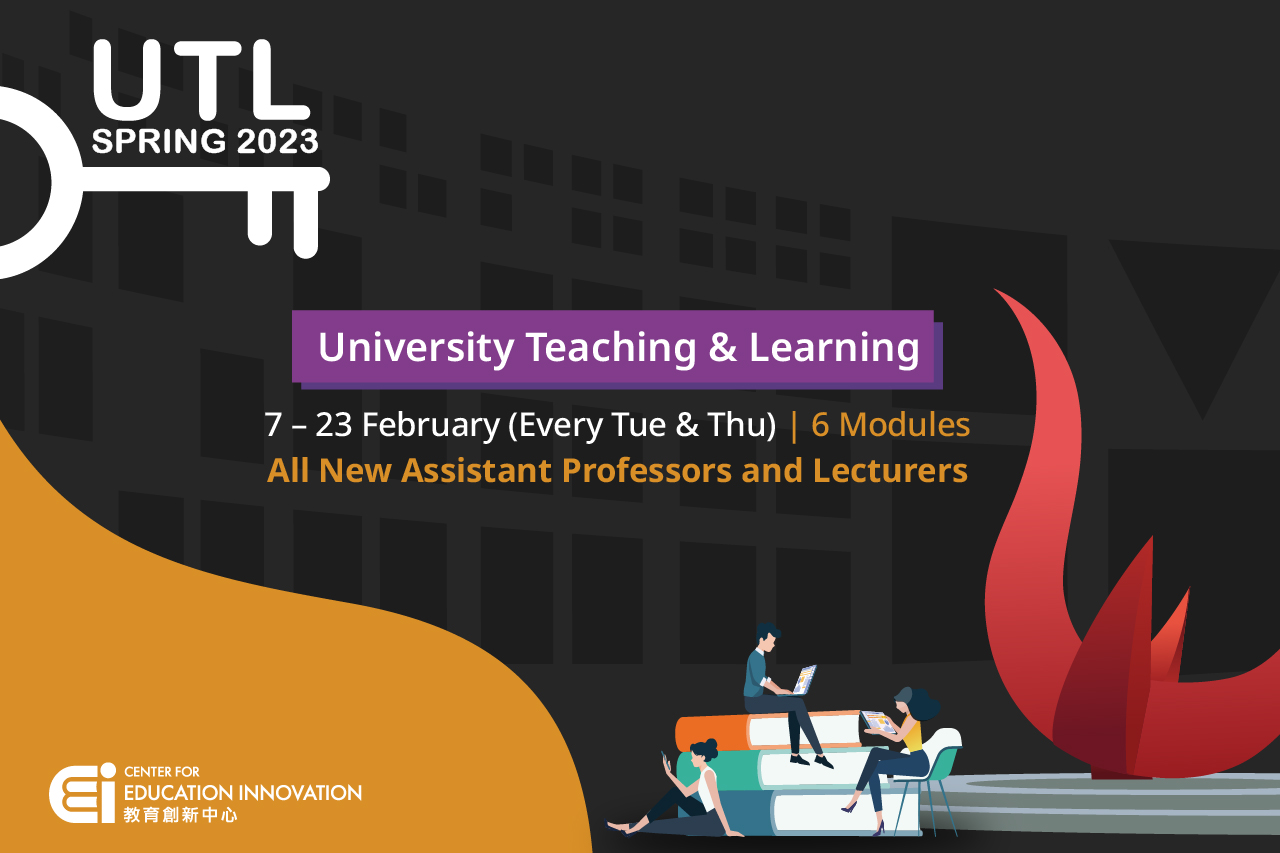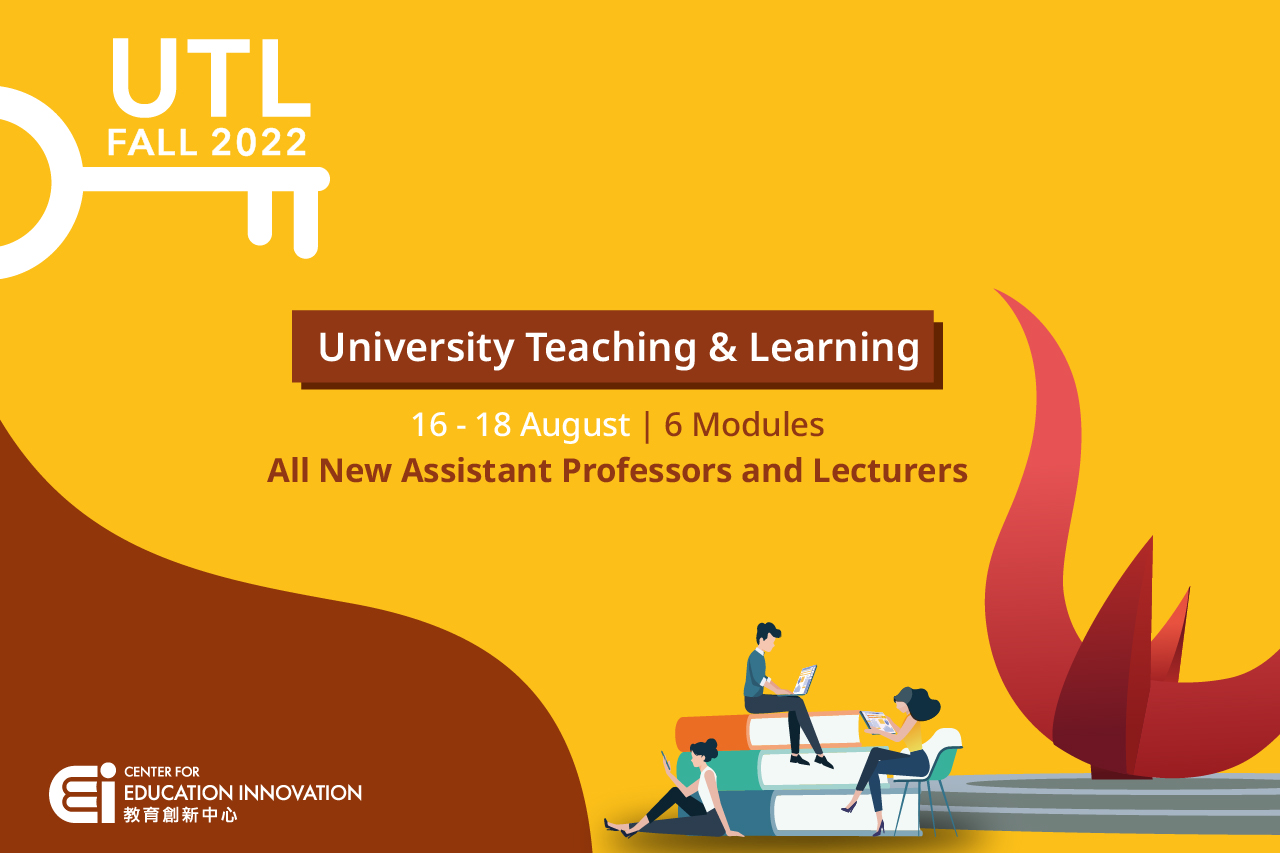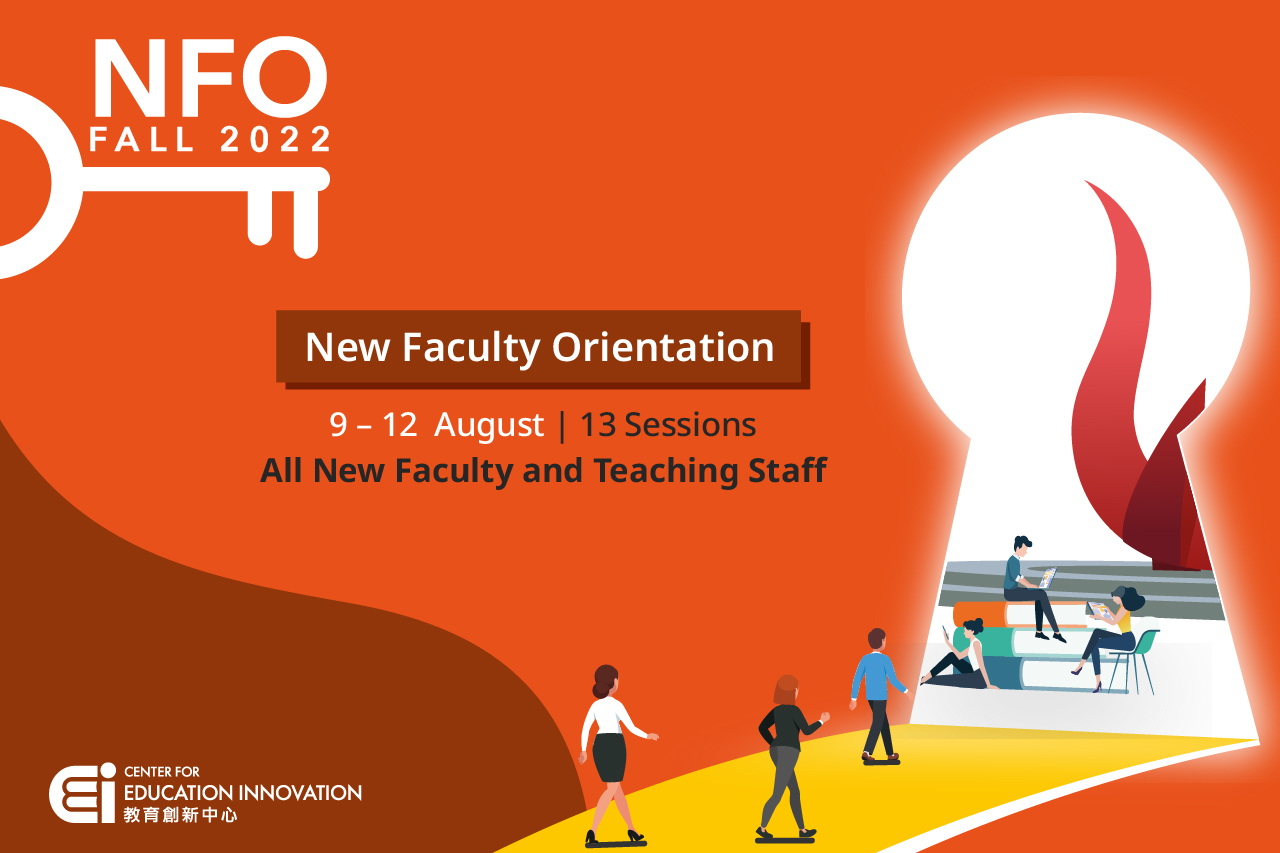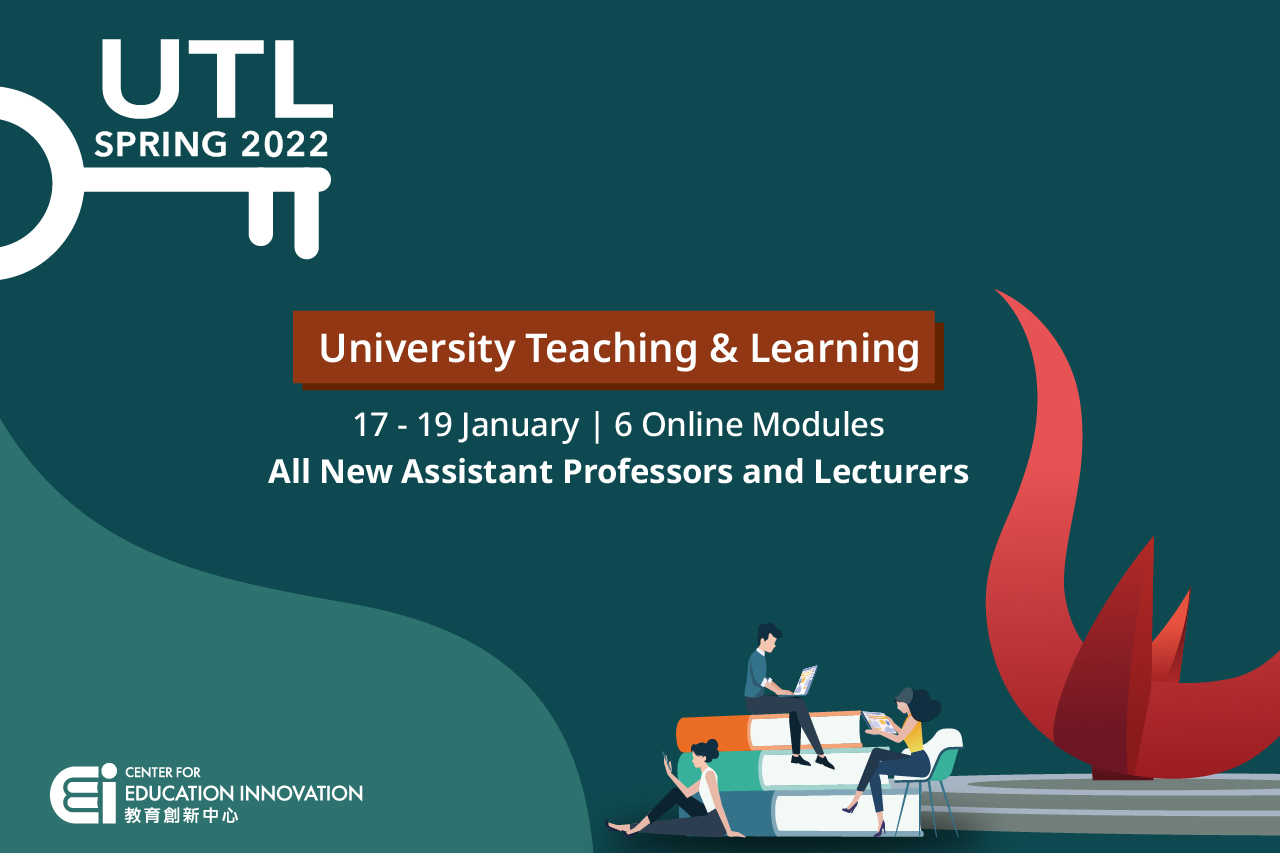University Teaching and Learning (UTL) Program | Spring 2024
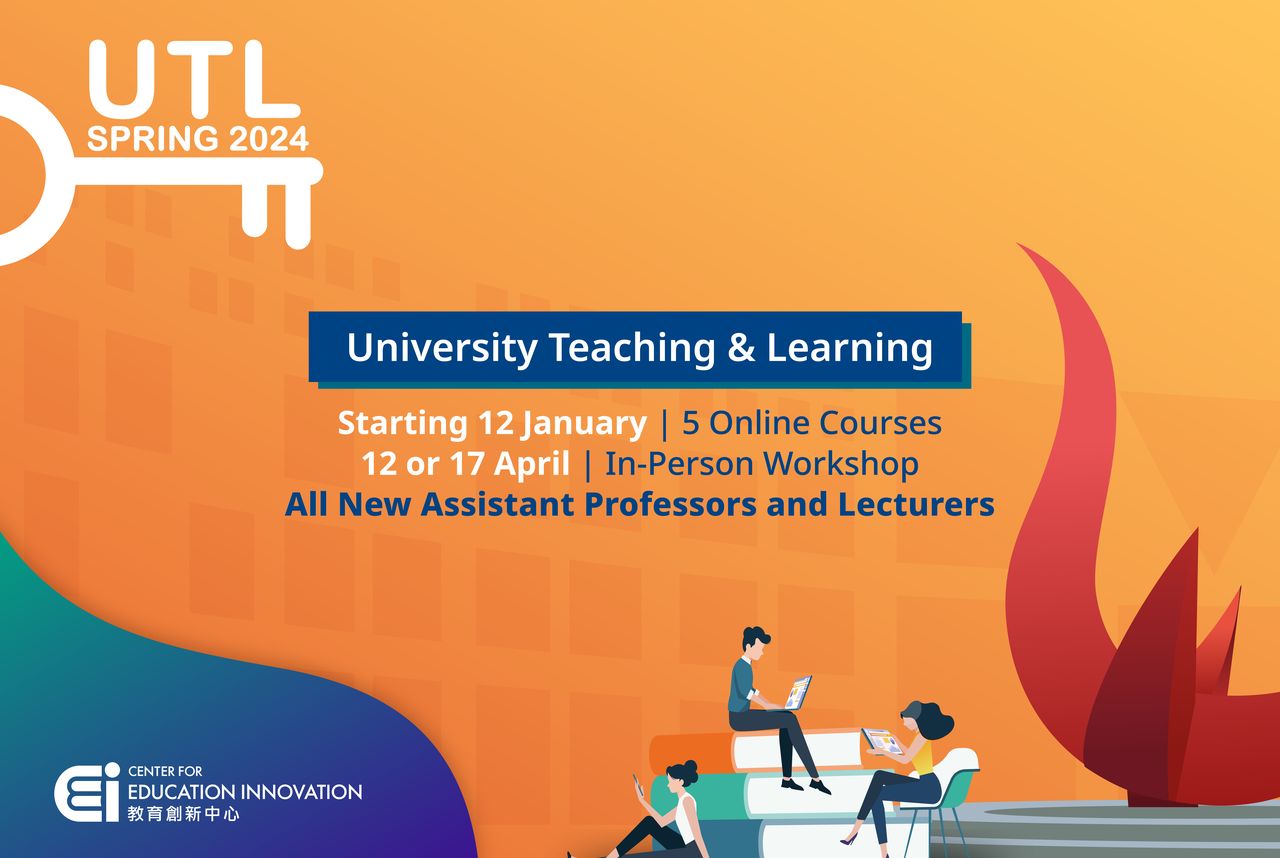
The University Teaching and Learning (UTL) Program is a mandatory initiative for all new Assistant Professors and Lecturers with teaching duties at the University. This program is designed to equip early career faculty with essential skills in university teaching and learning and is offered as part of the Academy of Education Excellence's (AEE) micro-credentials.
The UTL Program focuses on key areas such as learning theories, course design, assessment and feedback strategies, student engagement, and effective facilitation of group work. By participating in this program, participants will gain a solid foundation in these areas to provide a quality learning experience for the students.
Program Structure and Schedule
The program comprises of (1) self-paced online courses and (2) a follow-up in person workshop. All new Assistant Professors and Lecturers are required to complete the program in Spring 2024.
Five self-paced courses (approximately 2 hours for each course), will be available on Canvas starting January 12, 2024
A 3-hour in person interactive workshop is offered twice in the Spring semester. Attendance is contingent upon completion of all online courses.
Badges and Program Completion
A digital badge is granted for the completion of each course and the attendance of the workshop. A mastery program badge is awarded when all six badges (five from online courses and one from the workshop) are earned. The UTL Program requirement is fulfilled when the mastery program badge is earned.


